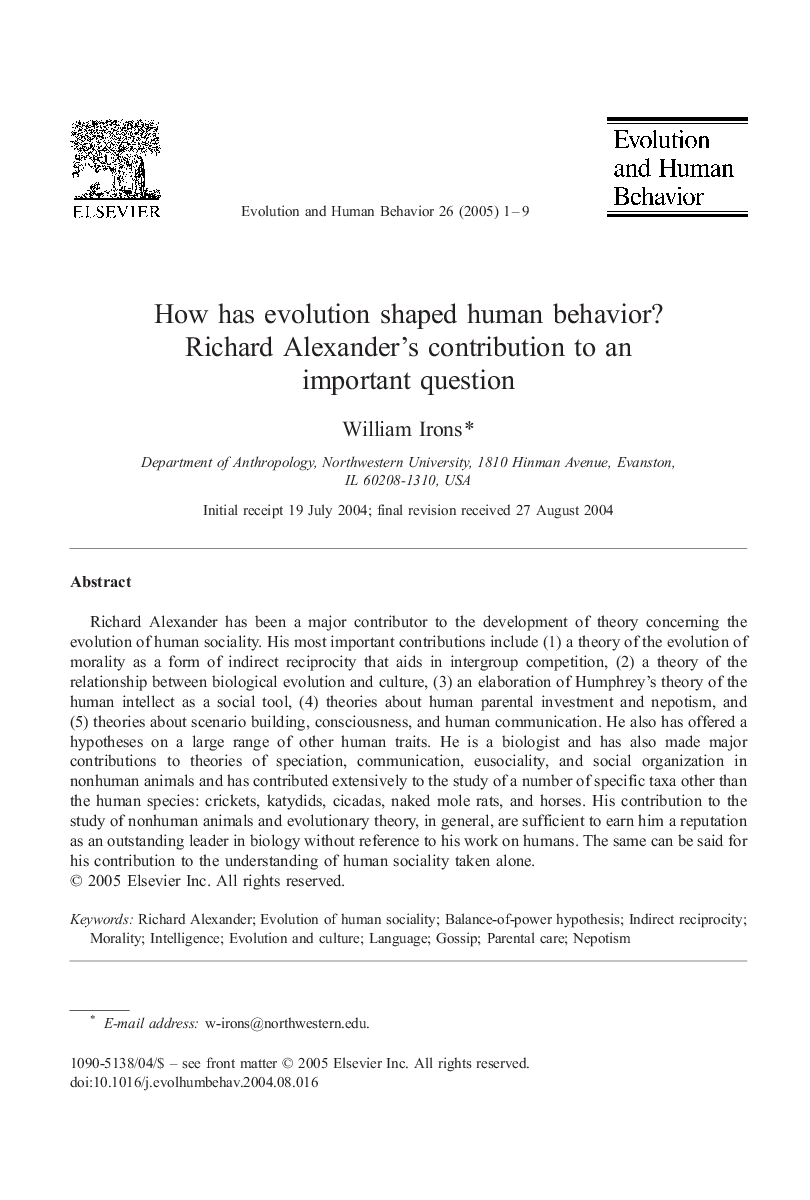| Article ID | Journal | Published Year | Pages | File Type |
|---|---|---|---|---|
| 10464114 | Evolution and Human Behavior | 2005 | 9 Pages |
Abstract
Richard Alexander has been a major contributor to the development of theory concerning the evolution of human sociality. His most important contributions include (1) a theory of the evolution of morality as a form of indirect reciprocity that aids in intergroup competition, (2) a theory of the relationship between biological evolution and culture, (3) an elaboration of Humphrey's theory of the human intellect as a social tool, (4) theories about human parental investment and nepotism, and (5) theories about scenario building, consciousness, and human communication. He also has offered a hypotheses on a large range of other human traits. He is a biologist and has also made major contributions to theories of speciation, communication, eusociality, and social organization in nonhuman animals and has contributed extensively to the study of a number of specific taxa other than the human species: crickets, katydids, cicadas, naked mole rats, and horses. His contribution to the study of nonhuman animals and evolutionary theory, in general, are sufficient to earn him a reputation as an outstanding leader in biology without reference to his work on humans. The same can be said for his contribution to the understanding of human sociality taken alone.
Related Topics
Life Sciences
Agricultural and Biological Sciences
Ecology, Evolution, Behavior and Systematics
Authors
William Irons,
